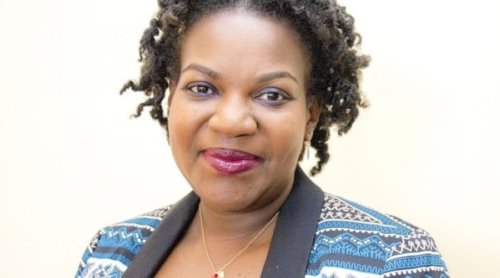IDS Grads Changing the World: Alice Musabende (MA ’16)
By Jessica Hirtle
When asked what she remembers most about her time at Dalhousie? – Alice Musabende says it was “the support”.
 In 2016 Alice Musabende received the Gates Cambridge scholarship, a globally prestigious scholarship for postgraduate students. Musabende is pursuing a PhD in Politics and International Relations at the University of Cambridge in England. Musabende is also a recipient of a SSHRC doctoral fellowship at the University of Cambridge.
In 2016 Alice Musabende received the Gates Cambridge scholarship, a globally prestigious scholarship for postgraduate students. Musabende is pursuing a PhD in Politics and International Relations at the University of Cambridge in England. Musabende is also a recipient of a SSHRC doctoral fellowship at the University of Cambridge.
Musabende’s research focuses on how international organizations navigate the sovereignty and identity of their member states and her current research focuses on the African Union and questions of identity.
For Musabende, the most rewarding part of her research is the opportunity to try to understand and make sense of conflict. Originally from Rwanda and a survivor of the Rwandan genocide, Musabende says “it feels like the right kind of research to do.”
“I didn’t actually choose it,” says Musabende. “It chose me.”
In addition, Musabende says it very is rewarding to be an African researcher studying questions of identity and African states.
“It’s ground-breaking. It’s very interesting,” says Musabende. “And it has the potential to affect and influence policy.”
“It’s really exciting.”
Prior to her studies at the University of Cambridge, Musabende received a Bachelor’s degree in Journalism and Communications from the National University of Rwanda in 2006. She later obtained a Master of Journalism from Carleton University in 2008.
With her six-month-old son, Musabende moved to Halifax and began her studies in international development at Dalhousie University in 2013. What she remembers most about her time at Dalhousie – the support.
“I loved every single day of my life there,” says Musabende. “It was amazing.”
For Musabende, Dalhousie offered a supportive environment, with helpful professors and staff, such as David Black, Theresa Ulicki and Nicole Drysdale.
I loved every single day of my life there. It was amazing.
“It was such a good place to be,” says Musabende.
Most importantly, Musabende says Dalhousie gave her the confidence to move forward in her academic endeavours.
“That’s what Dal is,” says Musabende. “It’s that place that told me that I could do it.”
“That’s what it gave me.”
I loved to see such work happening. It has given me hope and faith that some things are really changing and there are people who are dedicated to making that change.
Before Musabende arrived at Dalhousie, she says she was frustrated with development. However, Musabende says the program, specifically Dr. John Cameron, stressed the importance of starting with local development and engagement, before implementing development strategies abroad.
“I loved to see such work happening,” says Musabende. “It has given me hope and faith that some things are really changing and there are people who are dedicated to making that change.”
Musabende’s advice for IDS students: be present, immerse yourself in your studies and build your own principles. Musabende says that studying IDS also gives students time and space to reflect on where they want to be.
“It’s a very valuable time to do that self reflection,” says Musabende. “Figure out not just who you are and what your career should be, but also what you stand for.”
Musabende received a Masters of Arts in International Development Studies from Dalhousie University in 2016 and she says that her current research “definitely” relates to her MA in IDS, particularly readings on post-colonial and development theories as well as how countries negotiate aid.
“No question that it was extremely helpful,” says Musabende.
It’s a very valuable time to do that self reflection. Figure out not just who you are and what your career should be, but also what you stand for.